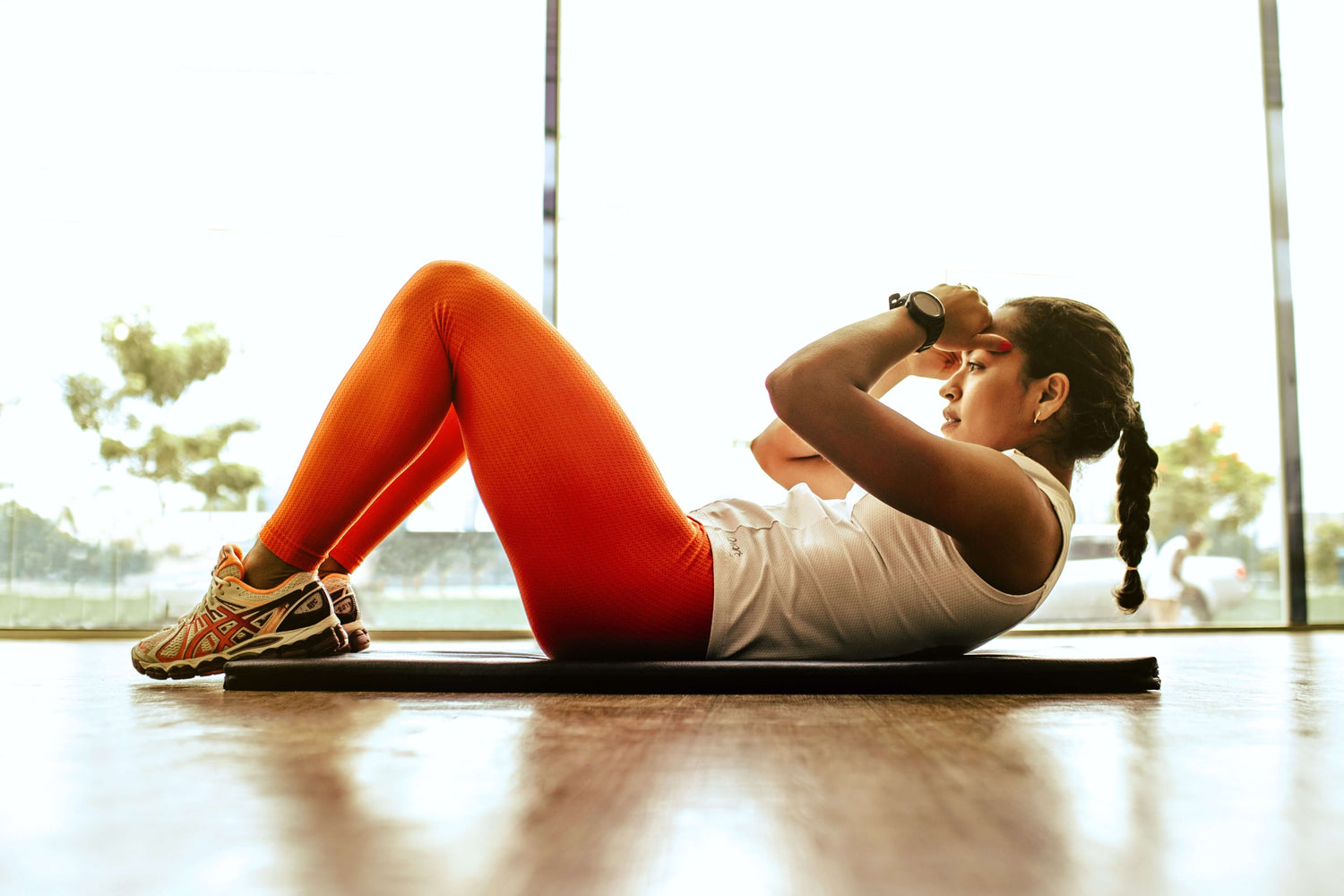If you are an athlete or a fitness enthusiast, you surely want to improve your sports performance . Whether you are a professional athlete or a simple sports lover, the goal of achieving better results is always present. But how can you reach a higher level?
In this article, we will explore different areas that can affect your sports performance and provide you with tips and tricks on how to improve it. You will discover the importance of nutrition, training, psychology, and injury prevention in reaching your physical peak.
Sports performance: what is it?
Sports performance is a broad and complex concept that refers to an individual's ability to perform at their best in sports-related physical activities. It involves several components, including strength, speed, endurance, agility, coordination, and precision. Sports performance is not just a matter of physical ability, but also of mindset, strategy, and preparation.
To better understand what it means to improve sports performance, it is essential to understand the key factors that influence the achievement of optimal results. Here are some key elements to consider:
1. Genetics:
Genetics plays a major role in influencing an individual's physical predispositions and athletic abilities. Some people may be more predisposed to certain sports or may possess physical characteristics that favor certain disciplines.
However, while genetics can provide a foundation, it is possible to improve performance through training and proper preparation.
2. Training:
Training is one of the key aspects of improving sports performance. Through a well-structured training program, you can develop strength, endurance, speed and other physical abilities specific to a sport.
Training should be targeted and adapted to the specific needs of each individual and the sport practiced.
3. Nutrition:
Nutrition is a key element in optimizing athletic performance. A balanced and adequate diet provides the body with the nutrients it needs to support physical activity and promote recovery.
Macronutrients (proteins, carbohydrates and fats) and micronutrients (vitamins and minerals) play an essential role in sports performance.
4. Rest and Recovery:
Rest and recovery are often overlooked, but are critical to improving athletic performance.
During rest, your body has a chance to heal, regenerate, and adapt to training. Proper rest helps prevent fatigue and injury.
5. Mindset and Psychological Factors:
The mental component is crucial to achieving high-level sports performance. Self-confidence, motivation, concentration and stress management are just some of the mental skills that can influence performance.
Working on sports psychology can help you achieve better results and manage pressure situations.
Find out what your sporting predispositions are by taking a Sport DNA test , click here .
Nutrition and Sports Performance
Nutrition plays a vital role in improving athletic performance. What you eat can affect your energy, muscle repair, endurance, and recovery . In this section, we explore the importance of nutrition in optimizing athletic performance, providing practical advice on what to eat and when to eat it.
What to Eat to Improve Sports Performance
Choosing the right foods can make a difference in your athletic performance. In this section, we will look at foods that can help you get the most out of your physical abilities, focusing on:
- Carbohydrate-rich foods to provide energy during physical activity.
- Protein sources to aid muscle repair and growth.
- Healthy fats to provide long-term energy.
- Foods rich in vitamins and minerals to support overall health and body function.
Training for Sports Performance
Training is a fundamental element in improving sports performance. Through a well-structured and targeted training program, it is possible to develop the specific physical abilities necessary to excel in your sport.
In this section, we will look at the importance of regular training, the equipment needed, and the training process.
Why Regular Training is Necessary
Regular training is essential to improving sports performance. Training consistently and consistently allows the body to adapt and improve the different physical capabilities required in sports.
Regular training helps develop muscular strength, cardiovascular endurance, flexibility, agility and coordination. It also helps improve your sport-specific technique and optimize your performance.
The Training Process
The training process includes several phases that allow you to maximize your sports performance.
These phases include the warm-up phase , which prepares the body for physical activity, the main training phase, during which the various sport-specific activities are performed, and finally the cool-down phase, which helps the body gradually return to calm.
It is important to follow a well-structured training program that is adapted to your needs and goals , including both general and sport-specific training.
When training, it is important to take into account several factors, such as intensity and volume progression , exercise variety, adequate recovery and adaptation to training. Training should be balanced and targeted , taking into account the specific needs of your sport and your individual capabilities.
Training is a key element to improve sports performance. Find out what your sports predispositions are by taking a Sport DNA test , click here .
Psychology and Sports Performance
Psychology plays a fundamental role in sports performance. The mind and emotions can significantly influence athletic performance and the ability to achieve one's goals.
In this section, we will explore the influence of psychology on sports performance, stress management techniques, and how to improve concentration and motivation.
The Influence of the Mind on Performance
The mind plays a critical role in sports performance. What we think and how we feel can affect our confidence, focus, motivation, and ability to handle pressure.
Negativity, anxiety and self-doubt can hinder performance , while positivity, confidence and mental focus can improve it. Therefore, it is important to develop a resilient and optimistic mindset to achieve the best results.
Stress Management Techniques
Stress is a common element in sports, but it is essential to know how to manage it to avoid it negatively affecting performance. There are several stress management techniques that can help athletes stay calm and focus on their performance.
Some of these techniques include deep breathing, visualization, meditation, progressive muscle relaxation, and the use of effective coping strategies.
Improve Concentration and Motivation
Concentration and motivation are key elements of a successful sports performance. Being able to focus on the task, block out distractions and maintain a high level of concentration can make the difference between a good and a great performance.
Similarly, intrinsic motivation and commitment to athletic goals can help overcome challenges and maintain perseverance.
There are several strategies and techniques to improve concentration and motivation, such as setting goals, using pre-race routines, adopting positive thoughts, and using self-motivation strategies.
Psychology plays an important role in achieving high-level sports performance. Find out what your sports predispositions are by taking a Sport DNA test , click here .
Recovery and Rest for Sports Performance
Recovery and rest are essential elements to optimize athletic performance. During intense physical activity, muscles suffer micro-injuries and the body becomes fatigued. Recovery allows the body to repair these injuries and regenerate muscle tissue, thus improving strength and endurance.
Additionally, adequate rest helps reduce the risk of overtraining, injuries, and helps maintain good hormonal balance.
Recovery Strategies
There are several recovery strategies that can help optimize athletic performance. These include:
- Stretching and muscle relaxation: Stretching helps improve flexibility and reduce muscle stiffness, aiding recovery and preventing injuries.
- Therapeutic Massage: Massage can promote muscle relaxation, improve blood circulation and reduce inflammation.
- Cryotherapy and heat therapy: The application of ice or heat can help reduce inflammation and promote healing of muscle tissue.
- Compression and active rest: Wearing compression garments and performing low-intensity activities can promote circulation and speed up muscle recovery.
- Quality Sleep: Sleep is essential for the body's recovery and regeneration. Quality sleep helps reduce muscle fatigue, improve concentration and promote overall well-being.
Find out what your sporting predispositions are by taking a Sport DNA test , click here .




Leave a comment
This site is protected by hCaptcha and the hCaptcha Privacy Policy and Terms of Service apply.